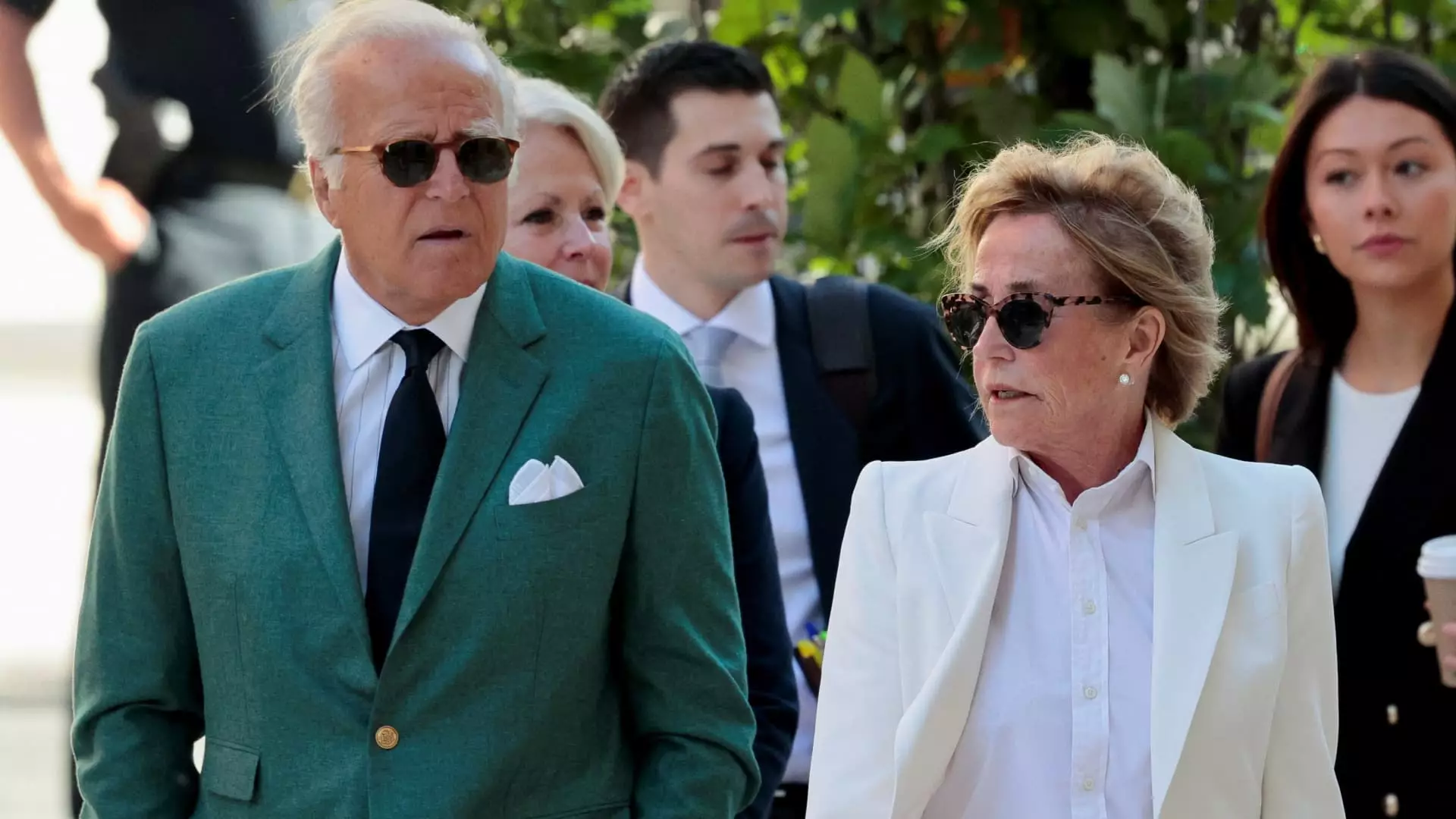The political landscape in the United States is often plagued with controversies, but President Joe Biden’s recent issuance of preemptive pardons for close family members and associates has raised eyebrows and sparked heated discussions. This unique set of pardons, extended to his brother James Biden, sister Valerie Biden Owens, and other associates, seems to be an attempt to insulate them from what Biden himself describes as “baseless and politically motivated investigations.” As the implications of these actions unfold, it is important to critically analyze the motivations behind the pardons and their broader impact on American politics.
The timing of Biden’s pardons is notable, occurring just as Donald Trump was entering the Capitol for his swearing-in ceremony. This juxtaposition raises questions about whether these pardons were intended as a direct counter to the incoming administration’s potential investigations. Biden’s administration has been marred by accusations of partisanship, especially from Republican lawmakers who have consistently sought to scrutinize Biden and his family’s dealings. By granting these pardons, Biden may have been signaling to his critics that he is prepared to defend his family’s honor against what he perceives as undue scrutiny.
This unprecedented move appears to reflect Biden’s belief that he and his family are under siege, citing a “desire to hurt” him as the motivation behind these ongoing investigations. The choice to preemptively pardon family members suggests an acute awareness of the vulnerabilities that come with political life; however, it also poses questions about the legitimacy of the investigations themselves. Are these inquiries grounded in credible concerns, or are they merely political tools wielded by opponents? This uncertainty leaves the door open for further allegations of political opportunism.
The issuance of pardons is not a new strategy within American political culture; however, employing them to shield immediate family members from investigations is relatively rare. Pardons traditionally serve as a means of displaying mercy or restoring rights forfeited due to criminal convictions. In this context, Biden’s pardons may be viewed through a different lens—one that suggests a political defense mechanism operating in an environment rife with partisanship.
In his press release, Biden articulated a broader narrative in which he connects the safety, reputation, and financial security of his family to the political turmoil enveloping his presidency. By framing the pardons as essential in combating a hostile political climate, Biden triumphantly casts himself as a protector of his family against the ramifications of hyper-partisan warfare. However, this symbolic act raises ethical concerns. Do these preemptive pardons set a troubling precedent in which the executive power to pardon is wielded for the personal protection of family members rather than as a tool for justice and redemption?
The Broader Implications of Biden’s Actions
Biden’s decision to pardon family members may not only impact his immediate political standing but also reverberate throughout the Democratic Party and electoral landscape. Critics will likely view these pardons as evidence of a potentially corrupt political landscape where familial ties can shield individuals from scrutiny. This perception may undermine public trust in the administration, especially for voters who value transparency and accountability.
Furthermore, the potential normalization of preemptive pardons could engender a culture where political figures routinely use executive power to shield allies and family members from investigations. Such a shift could foster an environment of impunity, allowing individuals to operate without fear of accountability, which runs contrary to the rule of law Biden professes to uphold.
Ultimately, while Biden’s preemptive pardons may safeguard his family for the time being, the ethical implications of these actions are profound. They highlight the ongoing tension between personal and political responsibilities that characterizes American governance. As Biden seeks to balance his familial loyalty with his role as a public servant, the question remains whether these pardons will fortify his standing or further fracture public trust in his leadership. The coming years will likely reveal the ramifications of this controversial decision, as both supporters and critics dissect its influence on the evolving narrative of political transparency and accountability in America.


Leave a Reply